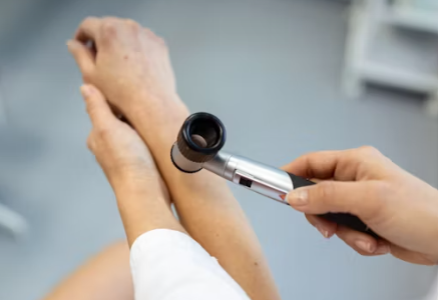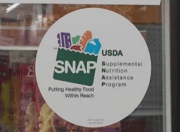Could this simple at-home test reveal hidden cancer before it's too late?
- Replies 0
Some of the most dangerous health threats hide in plain sight, often showing no signs until they’ve already spread. But what if catching one of them early could be as easy as taking a test at home?
Researchers have recently revealed a new tool that might one day shift the way people check for this silent killer—no needles, no blood, and no stressful wait at the lab.
This development, backed by a major public health agency, could eventually mean easier, quicker answers for people who often find themselves in and out of clinics for skin checks.
First, a quick refresher: Melanoma is the most dangerous type of skin cancer. While it accounts for only about 1% of skin cancer cases, it causes the vast majority of skin cancer deaths.
According to the American Cancer Society, over 104,000 new melanomas will be diagnosed in the US this year, and more than 8,400 people are expected to lose their lives to the disease.
What makes melanoma so deadly? Unlike other skin cancers that tend to stay put, melanoma is a master of disguise and a swift traveler.
It can quickly spread to lymph nodes and distant organs like the lungs, brain, or liver. Once it spreads, treatment becomes much more complicated, and survival rates drop dramatically.

Enter the ExoPatch, a silicone patch bristling with microscopic, star-shaped needles.
But don’t let the word “needle” scare you—these are so small (just 0.6 mm long and less than 100 nanometers wide at the tip) that they only reach the very top layer of your skin.
No blood, no pain, and no more anxiety-inducing biopsies for every suspicious mole.
Here’s how it works:
You might be wondering, “What’s an exosome, and why should I care?”
Exosomes are tiny bubbles released by cells, carrying DNA and RNA fragments. Cancer cells use exosomes to communicate and even prepare other parts of the body for invasion.
By detecting these cancer-specific exosomes, the ExoPatch can spot melanoma before it becomes visible or spreads.
So far, the ExoPatch has been tested on pig skin (which is surprisingly similar to ours) and on mice with melanoma. The results are promising:
Read also: Surviving the sizzle: what extreme heat does to your system—and 5 ways to protect yourself
People with fair skin, lots of moles, or a family history of melanoma know how time-consuming and stressful regular skin checks can be.
According to chemical engineering professor and study author Sunitha Nagrath, a person at higher risk typically sees a doctor every six months—and often undergoes multiple biopsies.
But if the ExoPatch is approved, it could allow these individuals to do routine at-home checks and only follow up with a professional if they get a positive result.
Dermatologist Dr. Sophie Momen welcomes the innovation but urges caution. She warns of possible false positives or negatives, especially if the test isn’t done correctly.
So for now, she says, “patients are encouraged to do monthly self-checks and seek immediate evaluation of any changing or new spots.”
Read also: Common body type under scrutiny after study reveals higher cancer risk
Here’s where things get even more exciting. The ExoPatch’s technology isn’t limited to melanoma.
Researchers believe it could be adapted to detect exosomes from other solid tumors—think lung, breast, colon, prostate, and even brain cancers.
Imagine a world where a simple patch could screen for multiple cancers, all from your own home.
Read next: New clue could help detect one of the deadliest cancers sooner, doctors say

What do you think about the idea of at-home cancer testing? Would you use a patch like the ExoPatch if it became available? Have you or someone you know been affected by melanoma?
Researchers have recently revealed a new tool that might one day shift the way people check for this silent killer—no needles, no blood, and no stressful wait at the lab.
This development, backed by a major public health agency, could eventually mean easier, quicker answers for people who often find themselves in and out of clinics for skin checks.
First, a quick refresher: Melanoma is the most dangerous type of skin cancer. While it accounts for only about 1% of skin cancer cases, it causes the vast majority of skin cancer deaths.
According to the American Cancer Society, over 104,000 new melanomas will be diagnosed in the US this year, and more than 8,400 people are expected to lose their lives to the disease.
What makes melanoma so deadly? Unlike other skin cancers that tend to stay put, melanoma is a master of disguise and a swift traveler.
It can quickly spread to lymph nodes and distant organs like the lungs, brain, or liver. Once it spreads, treatment becomes much more complicated, and survival rates drop dramatically.

Once it spreads, the chance of successful treatment drops sharply, and that’s why early detection is critical. Image source: Getty Images / Unsplash
Enter the ExoPatch, a silicone patch bristling with microscopic, star-shaped needles.
But don’t let the word “needle” scare you—these are so small (just 0.6 mm long and less than 100 nanometers wide at the tip) that they only reach the very top layer of your skin.
No blood, no pain, and no more anxiety-inducing biopsies for every suspicious mole.
Here’s how it works:
- You press the patch onto your skin for about 15 minutes.
- The microneedles, coated with a special gel, painlessly collect tiny packages called exosomes from the fluid just beneath your skin’s surface.
- These exosomes are like microscopic “messages in a bottle” sent out by your cells—including cancer cells.
- After removing the patch, you dissolve the gel in a solution, then dip a test strip into it.
- If the strip shows two lines, it means melanoma exosomes are present; one line means you’re in the clear. It’s as simple as reading a home pregnancy or COVID test.
You might be wondering, “What’s an exosome, and why should I care?”
Exosomes are tiny bubbles released by cells, carrying DNA and RNA fragments. Cancer cells use exosomes to communicate and even prepare other parts of the body for invasion.
By detecting these cancer-specific exosomes, the ExoPatch can spot melanoma before it becomes visible or spreads.
So far, the ExoPatch has been tested on pig skin (which is surprisingly similar to ours) and on mice with melanoma. The results are promising:
- The patch could clearly distinguish between healthy and cancerous tissue.
- It collected over 11 times more exosomal protein from melanoma tissue than from healthy skin
- The test strip showed a much darker line for cancerous samples, making results easy to interpret.
Read also: Surviving the sizzle: what extreme heat does to your system—and 5 ways to protect yourself
People with fair skin, lots of moles, or a family history of melanoma know how time-consuming and stressful regular skin checks can be.
According to chemical engineering professor and study author Sunitha Nagrath, a person at higher risk typically sees a doctor every six months—and often undergoes multiple biopsies.
But if the ExoPatch is approved, it could allow these individuals to do routine at-home checks and only follow up with a professional if they get a positive result.
Dermatologist Dr. Sophie Momen welcomes the innovation but urges caution. She warns of possible false positives or negatives, especially if the test isn’t done correctly.
So for now, she says, “patients are encouraged to do monthly self-checks and seek immediate evaluation of any changing or new spots.”
Read also: Common body type under scrutiny after study reveals higher cancer risk
Here’s where things get even more exciting. The ExoPatch’s technology isn’t limited to melanoma.
Researchers believe it could be adapted to detect exosomes from other solid tumors—think lung, breast, colon, prostate, and even brain cancers.
Imagine a world where a simple patch could screen for multiple cancers, all from your own home.
Read next: New clue could help detect one of the deadliest cancers sooner, doctors say
Key Takeaways
- Researchers at the University of Michigan have developed a silicone patch called the “ExoPatch” that could let people test for melanoma—a deadly skin cancer—at home, potentially eliminating the need for a biopsy or blood test.
- The ExoPatch uses tiny star-shaped microneedles coated in a special gel to painlessly collect exosomes from the top layer of the skin, which are then tested for melanoma using a strip that shows results much like a COVID-19 rapid test.
- Early trials on pig and mouse skin have shown the test can reliably distinguish between healthy and cancerous tissue, but further studies—including on humans—are needed before the technology becomes widely available.
- Experts are optimistic about the potential for easier early detection of melanoma (and possibly other solid tumors in the future), but caution that, for now, people should still consult a doctor about any new or changing moles.






